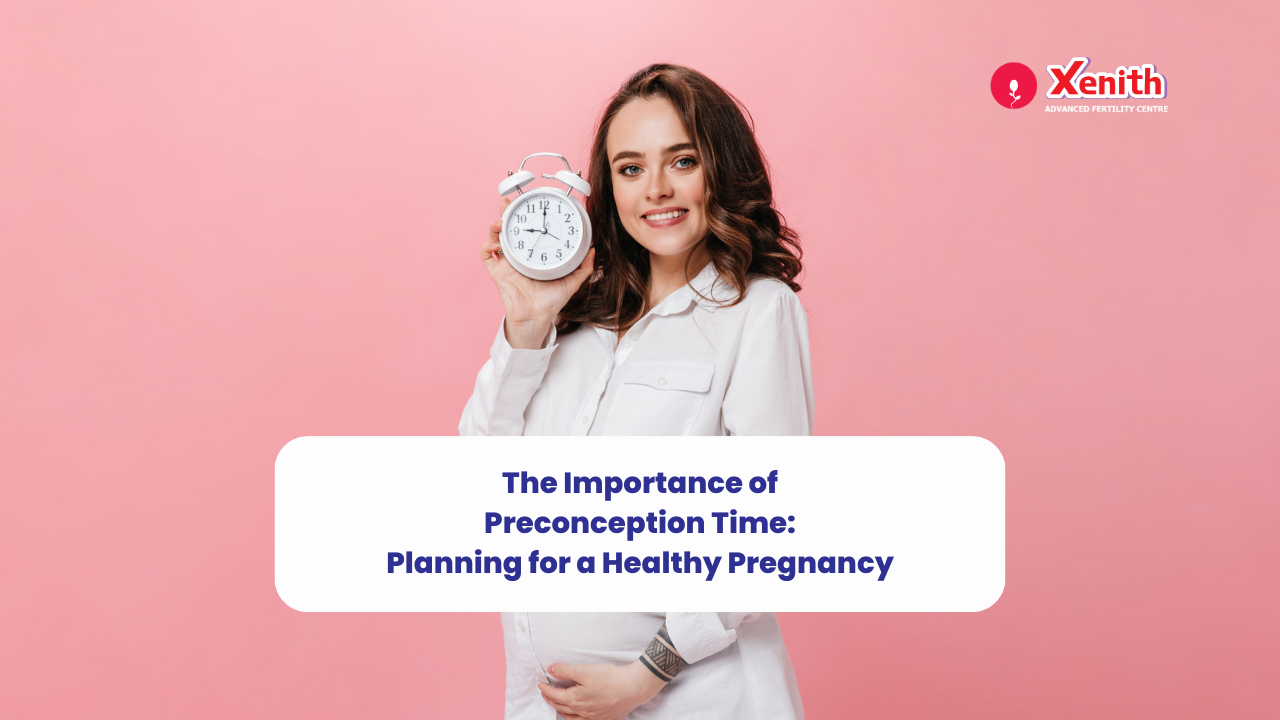Often, living a healthy lifestyle usually begins once a woman finds out that she is pregnant. Preconception is the time before the sperm fertilizes the egg and so preconception age is usually the period of time between the decision to try to have a baby and when conception actually occurs. The time before conception is important because your lifestyle, diet and various other things could affect conception, going through a successful pregnancy, and affect the future physical and mental health of the mother and baby. So, during this time, you might need to make changes in your lifestyle or do other things in order to improve your chances of conception and also ensure a healthy pregnancy. Men should also be included in this because the quality of sperm could be affected by their lifestyle and various other factors. Ideally, this plan should be looked at least 3 months before conception and the plan is different for each person. The doctor could counsel and educate you on the risks involved and also make up a preconception plan for you to follow depending on your unique circumstances. Counseling and education is important to know about the potential risks that might be involved in your particular circumstances and what you could do to optimize the chances of conception.
How do you plan for a healthy pregnancy
- Optimize your reproductive health- It allows you to look at any medical conditions you might have like blood pressure, diabetes, endometriosis, polycystic ovarian syndrome(PCOS), celiac disease, depression, kidney, heart or thyroid issues and discuss with your physician about how this could affect your fertility or your pregnancy journey. If you have certain diseases like HIV and other sexually transmitted diseases, it could be passed on to the baby and the medications you take might cause miscarriages or affect the fetus and so you need to discuss with your doctor about what to do under these circumstances. If there are any genetic disorders that run in your family, you need to understand the risk of passing this disorder to the baby. If you are on certain medications, talk to your doctor about its effects on conception and having a healthy pregnancy. Diabetes should be well under control to prevent chances of miscarriage, and other complications to both mother and baby.
- Getting proper nutrition – is very important in improving your fertility and your chances of conception. So, you should follow a well balanced diet which is rich in whole grains, fruits, vegetables, fish, nuts, and avoid processed, sugary and fried foods. Prenatal supplements like folic acid and iron or prenatal vitamins may be needed to make sure all your nutritional requirements are met. Folic acid should be taken at least 3 months before conception to prevent neural tube defects. The quality and quantity of sperm in men could be affected by nutrition as well as other factors like heat, chemicals like pesticides, radiation and various other things. (1)
- Lifestyle factors– or how you live your life could affect your chance of conceiving successfully and having a healthy baby and mother. Try to get enough exercise, enough sleep, decrease stress, stop smoking, stop drinking alcohol or drinking excessive caffeine, maintain proper weight, and avoid being exposed to toxins or other chemicals that could be harmful like pesticides, X Ray etc. Obesity could increase risk of gestational diabetes, hypertension, stroke, congenital heart problems for the fetus and various other issues. Being underweight could also cause low birth weight, decrease chances of conception causing both mother and fetus being nutrient deficient and along with various other issues.
- Age – can affect the chances of conception because with increasing age, comes more issues with infertility. More and more couples are delaying having children due to continuing education, achieving career goals, not having financial security or various other reasons leading to increased use of assisted reproductive technologies like IVF. So, if you are planning to have children, try to plan it while you are younger or below 35 years of age.
- Counseling- talking to a professional counsellor about the risks involved especially if you are dealing with depression or certain infections like Hepatitis B or HIV where vaccinations or medications might be crucial and how to cope with this successfully. (2)
In conclusion, it is very critical to plan ahead before conception in order to have a healthy and successful pregnancy. You can learn to be proactive to improve your chances of conception. Speak to your doctor about giving you a risk assessment in your particular case and how to go about doing this and also get more educated about the consequences of your actions. This could give you more confidence to embark on this parenthood journey and navigate through conception and pregnancy successfully. If you are interested in learning more about this, come talk to the experts at Xenith Advanced Fertility Centre.




